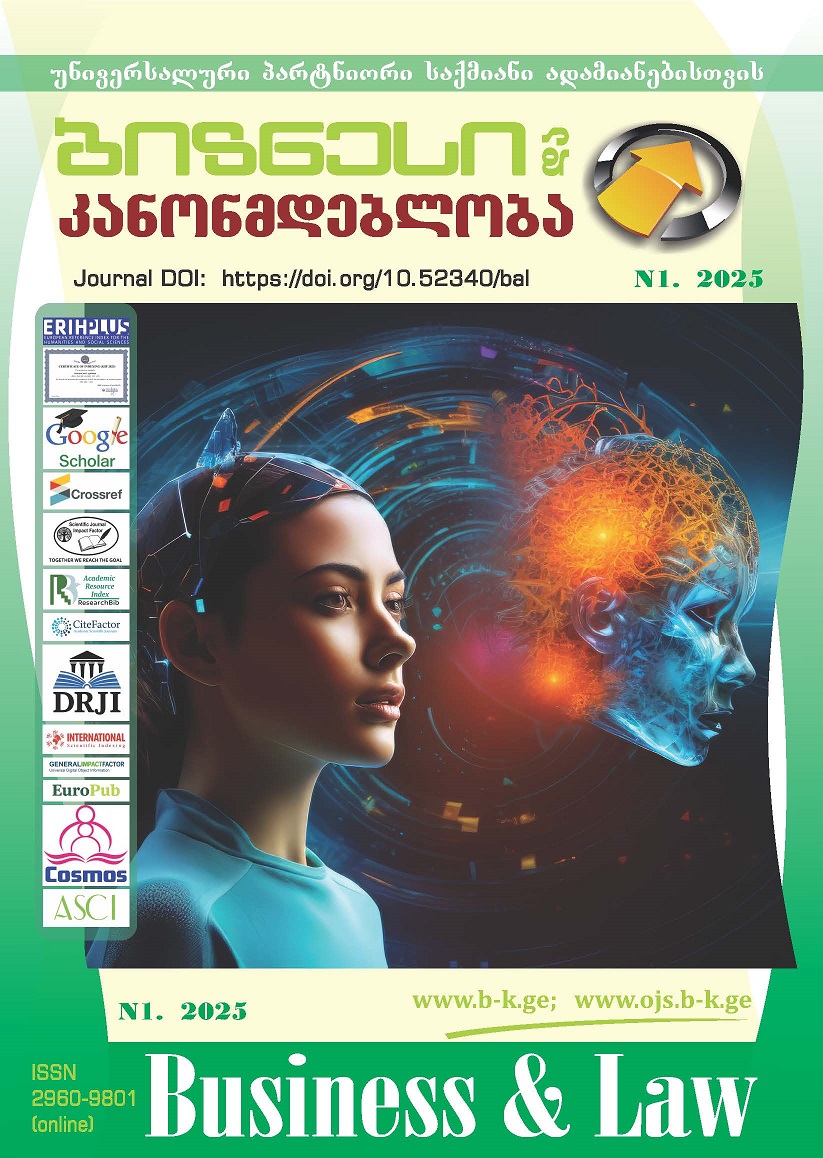Rethinking the Barriers to Student Entrepreneurship in the Digital Age – influence of AI
DOI:
https://doi.org/10.52340/bal/2025.18.01.01Keywords:
students, entrepreneurial barriers, entrepreneurial intentions, financial barriers, psychological barriers, educational support, institutional support, youth entrepreneurshipAbstract
This article explores the diverse obstacles that inhibit student engagement in entrepreneurial activities in the context of contemporary higher education and digital transformation. Drawing on recent studies and policy reports, it presents a revised framework for categorizing these barriers and proposes a more nuanced understanding of how institutional, cultural, and individual-level dynamics intersect to shape students' entrepreneurial intentions. The study offers practical recommendations for universities and policymakers to create enabling environments for entrepreneurial action.
References
Al-Fattal, A. (2024). Youth Entrepreneurship in the Middle East. Journal of Regional Economic Studies, 12(1), 22–43;
Alqahtani, A. (2023). Artificial Intelligence and the Ethics of Assessment in Higher Education. Journal of Moral Education and Technology, 12(2), 89–104;
Botha, A., Makhuzeni, B., & Van Wyk, D. (2021). Machine Learning for Entrepreneurial Competency Assessment. International Journal of Educational Technology in Higher Education, 18(1), 1–20;
Global Entrepreneurship Monitor (GEM) (2024/2025) Global Report: Entrepreneurship Reality Check. [online] Available at: [URL отчёта, если есть] [Accessed 2 July 2025];
Chen, J., Zhang, Y., & Liu, M. (2024). Artificial Intelligence in Entrepreneurship Education: A Scoping Review. Journal of Educational Innovation and Technology, 18(1), 45–62;
Ethikbeirat HRTech. (2020). Guidelines for the Responsible Use of Artificial Intelligence and Digital Technologies in HR Work. https://www.ethikbeirat-hrtech.de;
European Commission. (2020). Digital Education Action Plan 2021–2027: Resetting education and training for the digital age. https://education.ec.europa.eu;
Fayolle, A. (2015). Personal views on the future of entrepreneurship education. Entrepreneurship & Regional Development, 27(7-8), 527–543;
GEM Reports. Global Entrepreneurship Monitor, 2022/23. https://www.gemconsortium.org/report/gem-2022-2023-global-report;
Kröll, M., & Burova-Keßler, K. (2021). AI and Learning in the Context of Digital Transformation. In S. Nazir et al. (Eds.), Advances in Human Factors and System Interactions (pp. 36–43). Springer;
Liang, Y., Xie, Y., & Sun, H. (2021). AI-Driven Evaluation Systems in Entrepreneurship Education: Opportunities and Risks. Journal of Educational Computing Research, 59(8), 1589–1610;
OECD. (2021). Supporting Young Entrepreneurs. OECD iLibrary. https://www.oecd.org/cfe/leed/supporting-young-entrepreneurs. htm;
Rossmann, A., Zimmermann, A., & Hertweck, D. (2020). The Impact of Chatbots on Customer Service Performance. In J. Spohrer & C. Leitner (Eds.), AHFE 2020. Advances in Intelligent Systems and Computing (Vol. 1208, pp. 237–243). Springer;
Sedkaoui, S. (2018). Data Analytics and Artificial Intelligence for Smart Entrepreneurship. Wiley;
Xanthopoulou, P., & Sahinidis, A. (2024). Exploring the Psychological Determinants of Student Entrepreneurship. Journal of Innovation and Business Studies, 16(2), 91–112;
Zhao, H., Seibert, S.E., & Hills, G.E. (2005). The Mediating Role of Self-Efficacy in the Development of Entrepreneurial Intentions. Journal of Applied Psychology, 90(6), 1265–1272;
Zhu, Q., & Zhang, Y. (2022). Pedagogical Challenges of AI Integration in Higher Education: Towards Human-Centered Design. Computers & Education, 184, 104532.
Downloads
Published
How to Cite
Issue
Section
License
Copyright (c) 2025 Business and Legislation

This work is licensed under a Creative Commons Attribution-NonCommercial-NoDerivatives 4.0 International License.

















